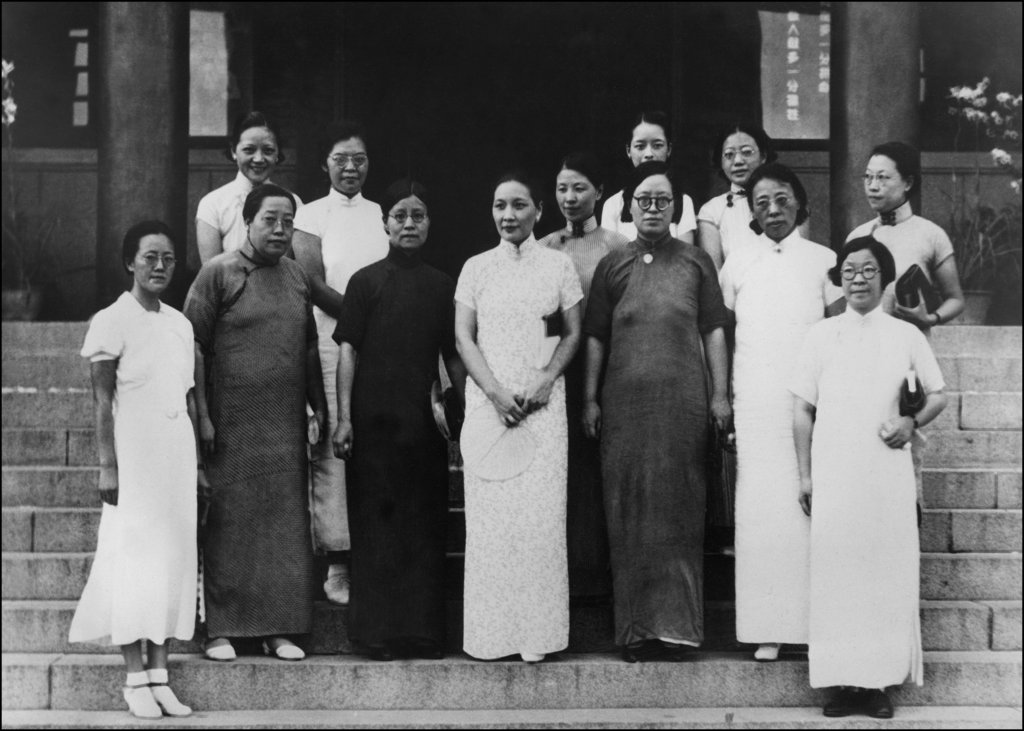
My Chinese teachers in the 60's and 70's all wore the qipao or chieng yee. My Aunts from Singapore, when they came to visit, also wore the cheing yee and they looked so nice.
My grand aunt, Chang Yuk Ging, wore only the qipao every where she went. And I remember buying materials for her from KL. I asked her what kinds of materials would be good for her qipao. She only liked cotton.

Sibu born Foochow women like my mother and aunts did not wear qipao.
The Cheongsam (Hong Kong Cantonese term) aka qipao (Mandarin) is believed to have evolved from a long robe worn by Manchu women during the Qing Dynasty. (1644-1911)
Before qipao became popular in China, Chinese women wore two piece outfits consisting of tops paired with either skirts or pants.
The earliest qipao were loosely fitted and had a low hemline that reached the ankle.s
It was known that the first group of Chinese female students wore the qipao in Shanghai in 1912, made of cotton, plain in design and loose fitting with bell sleeves. Looking like a modification of the man's long robe, the qipao was in a bid for gender equality. This experimental style of dress piqued the interest of other women and it soon became a trendy outfit.
Shanghai was the fashion capital of China and soon the qipao spread to other parts of the country especially when posters featured beautiful women dressed in qipao.
It was in the 1930's that the Singaporean Peranakan women in Singapore caught the qipao style It was often worn when women took graduation photos. Soon school teachers began wearing the qipao. And soon most working worken in Singapore and Malaya wore the qipao. in the 1950's and 60's.



No comments:
Post a Comment